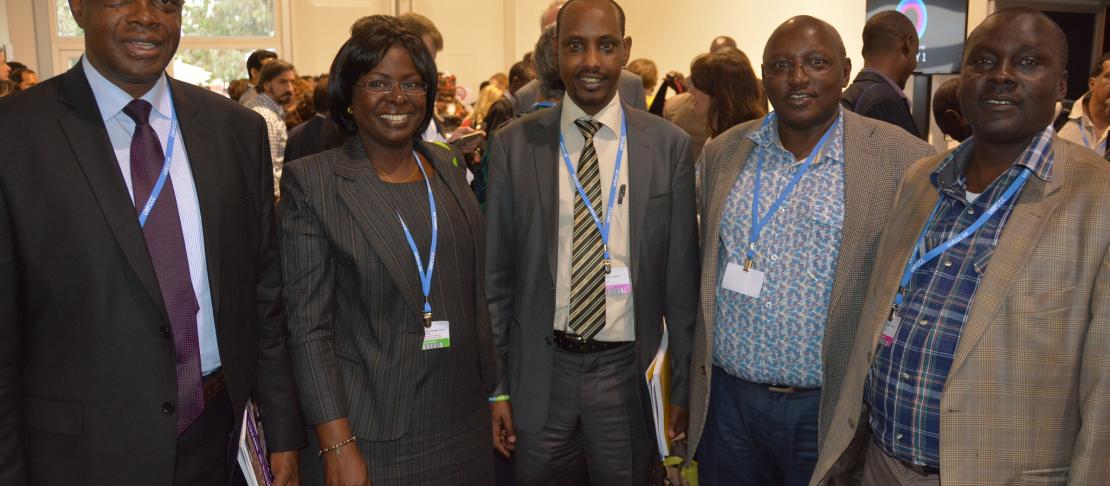Introducing Africa’s bridge between science and policy

A new web-based platform seeks to link scientists with policy makers to address climate change, agriculture and food security issues in Africa.
Farming communities in Africa are becoming more fragile as climate change and increasingly variable weather are reducing agricultural productivity. There is an urgent need for strategies to build resilience for African farmers to adapt to these changing conditions. Policies affecting agriculture need to be scientifically informed to reduce climate change effects and improve farmers’ livelihoods.
Due to the need for knowledge-based policy-making on climate change and agriculture issues in Africa, the CGIAR Research Program on Climate Change, Agriculture and Food Security (CCAFS), Common Market for Eastern and Southern Africa (COMESA) the Rockefeller Foundation and Pamoja Media came together to form the Climate and Agriculture Network for Africa (CANA). It is a regional learning platform that seeks to capture the synergies of research and create opportunities for linking emerging lessons with policy.
The context is that scientists are from Venus and policymakers are from Mars. They have two different constituencies, styles, and interest. Understanding the differences can ensure better cooperation when they work together. Policymakers are more likely to use evidence in political systems that call them to account through strong networks and an active media. One of the biggest challenges in the science-policy interface is the shift from the two community approach to the network approach," Paul Musoma
During the CCAFS official side event at COP 20, Climate-smart agriculture innovations to increase food security and rural incomes under climate change, CCAFS East Africa Program leader Dr. James Kinyangi officially launched the new learning platform encouraging participation from everyone in Africa.
This is an amazing opportunity that brings scientific evidence direct to policymakers. - James Kinyangi
"It is about time we had such a platform," continued Kinyangi. "There is a lot of information out there and it would be great to have it all in one place."
"I look forward to making use of the platform especially to find material on how to enhance rural incomes in my country," said Mafu Nkosi from the Rural Environment and Agricultural Development, South Africa.
The side event was the ideal venue for launching the platform, because it has a sub-page that is fully committed to climate-smart agriculture (CSA). The page presents opportunities for innovation through adoption of appropriate CSA, practices and policies that can help smallholder farmers sustain and improve their livelihoods.
This platform is a good avenue, which will help the African youth interested in taking up agriculture as a business opportunity to access important information on agriculture and climate change,”Alfred Keter, Member of Parliament from Kenya.
Climate and Agriculture Network for Africa
CANA brings together researchers and practitioners within climate science and agriculture who are seeking to build resilience within African agriculture. The platform fills an important niche by linking climate change and agriculture policy processes with key research and development actors from Africa. The highly interactive platform will ensure timely sharing and access to information by all the partners involved. CANA promotes online collaboration amongst institutions and partners and will bring together an increasing group of players within the climate change and agriculture sectors to be involved in conversations on the establishment of best practices for African Agriculture.
Key themes in CANA include:
- Building resilience to climate change
- Low emissions development
- Financing climate adaptation
- Policies for adaptation
- Climate-smart agriculture
- Gender and equity
Watch the video launch:
Solomon Kilungu and Catherine Mungai both work for CCAFS East Africa
CCAFS and partners were at the UN Climate Talks in Lima in December 2014 to share experiences and insights on agriculture and food security. Find out more and join the conversation online by following our COP20 blog, @cgiarclimate on twitter, on Facebook and Google+.



